30 Surprising Things You Should Never Put in the Garbage
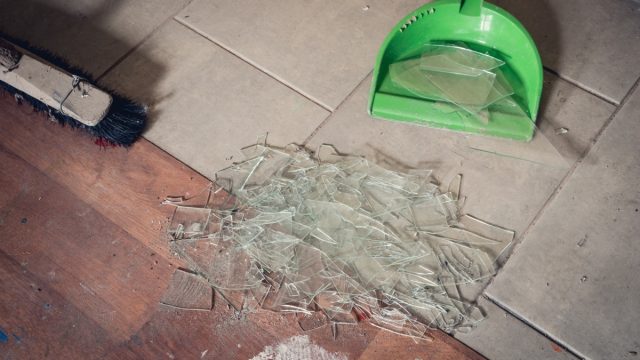
One man’s trash isn’t always another man’s treasure. While some worn out or extraneous household items really do belong in a dumpster, others—like unused medications or pieces of technology—are more complicated to get rid of. In order to prevent your unwanted goods from harming people or the environment, you have to make sure that they’re getting disposed of the right way. So, to help you out, we’ve compiled a list of all the things you should never, ever throw in the trash, along with tips on what to do with them instead. And for more things to avoid, check out these 13 Things You Should Never Pour Down the Drain.
1
Rechargeable Batteries
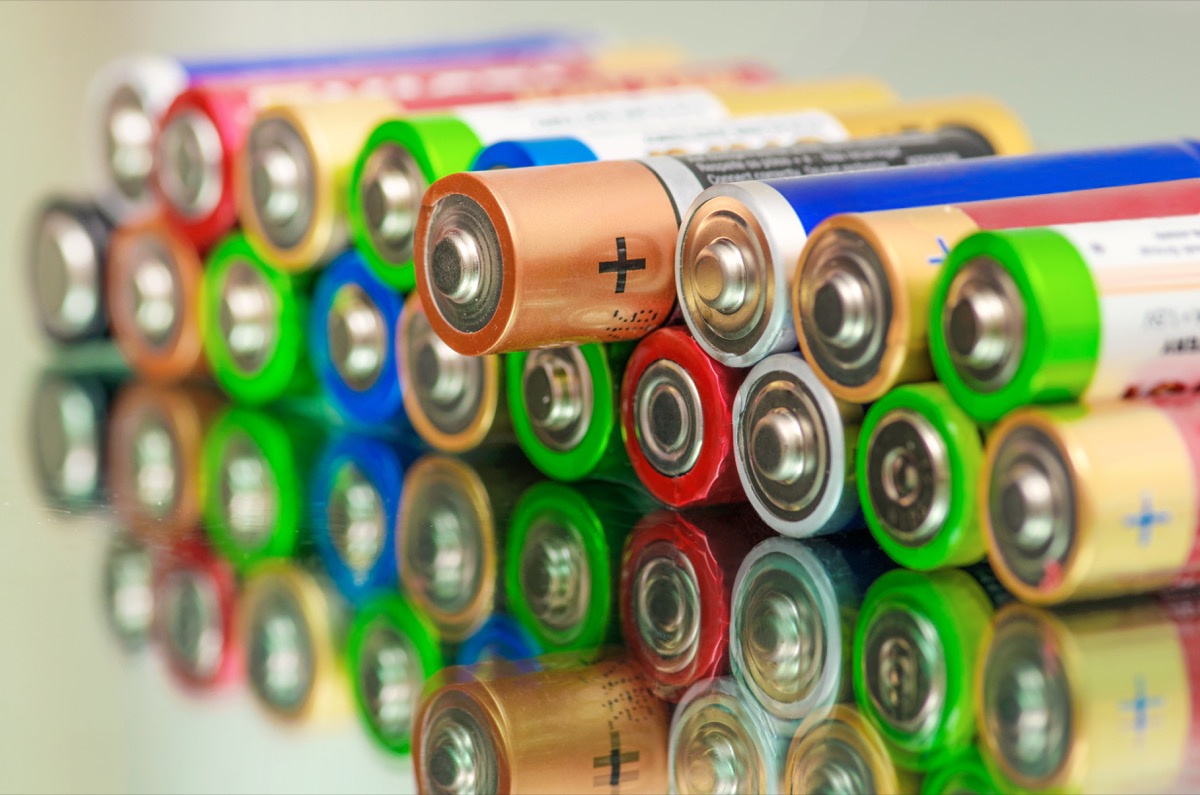
It’s pivotal to check what kind of batteries you’re tossing before throwing them in your bin. According to the U.S. Department of Agriculture (USDA) Forest Service, rechargeable batteries containing nickel-cadmium and lead-acid need to be brought to special facilities. (You can find a list of suitable recycling facilities here.) Otherwise, “regular alkaline, manganese, and carbon-zinc batteries are not considered hazardous waste and can be disposed of with ordinary trash,” according to the USDA.
2
Fluorescent Bulbs
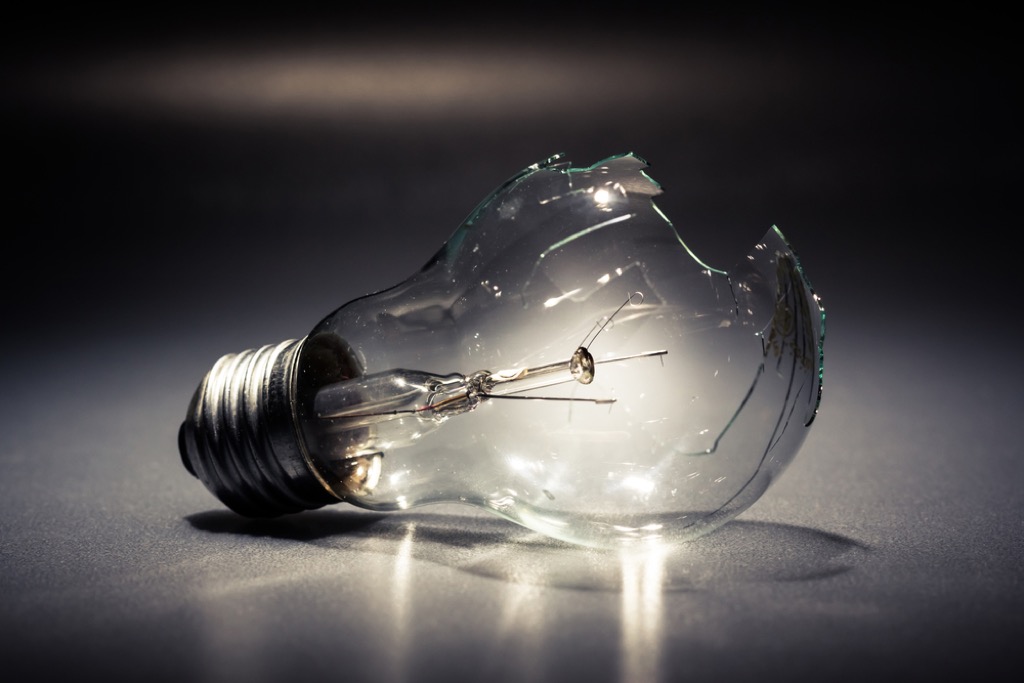
Do not ever throw your fluorescent lightbulbs in the garbage. According to the U.S. Environmental Protection Agency (EPA), fluorescent lightbulbs contain mercury that, when released into the environment, can do some serious damage.
Instead, check out Earth911 to find a service that can help you recycle your old fluorescent bulbs. When they’re recycled properly, the materials that these bulbs are made of out—like glass and metal—can successfully be repurposed (and won’t do any damage in the atmosphere). And for more items you didn’t know could find new life, discover 23 Things You Had No Idea You Could Recycle.
3
Mercury Thermometers
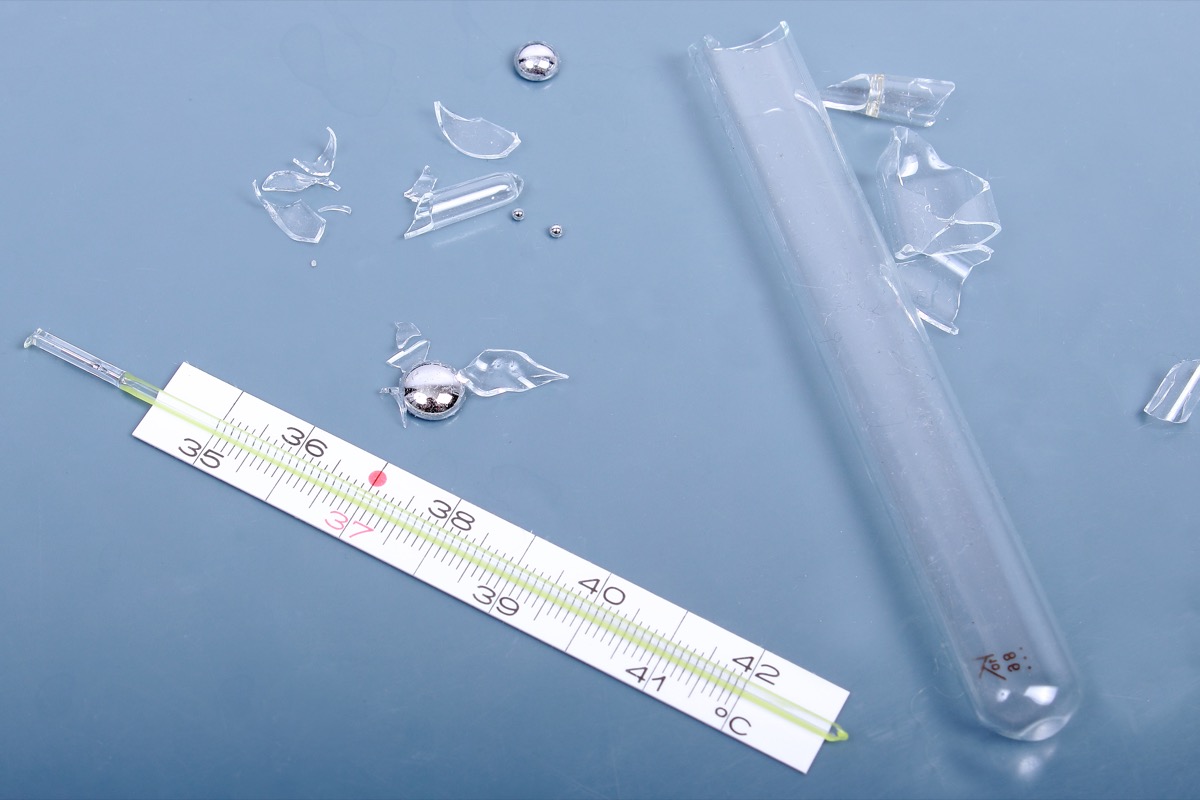
Similarly, if your thermometer is filled with mercury, you can’t just toss it in the trash. The EPA warns that you should either “wait for a hazardous waste collection day” or bring it “to a household hazardous collection center in a cardboard box,” depending on what services your city offers.
4
Paint
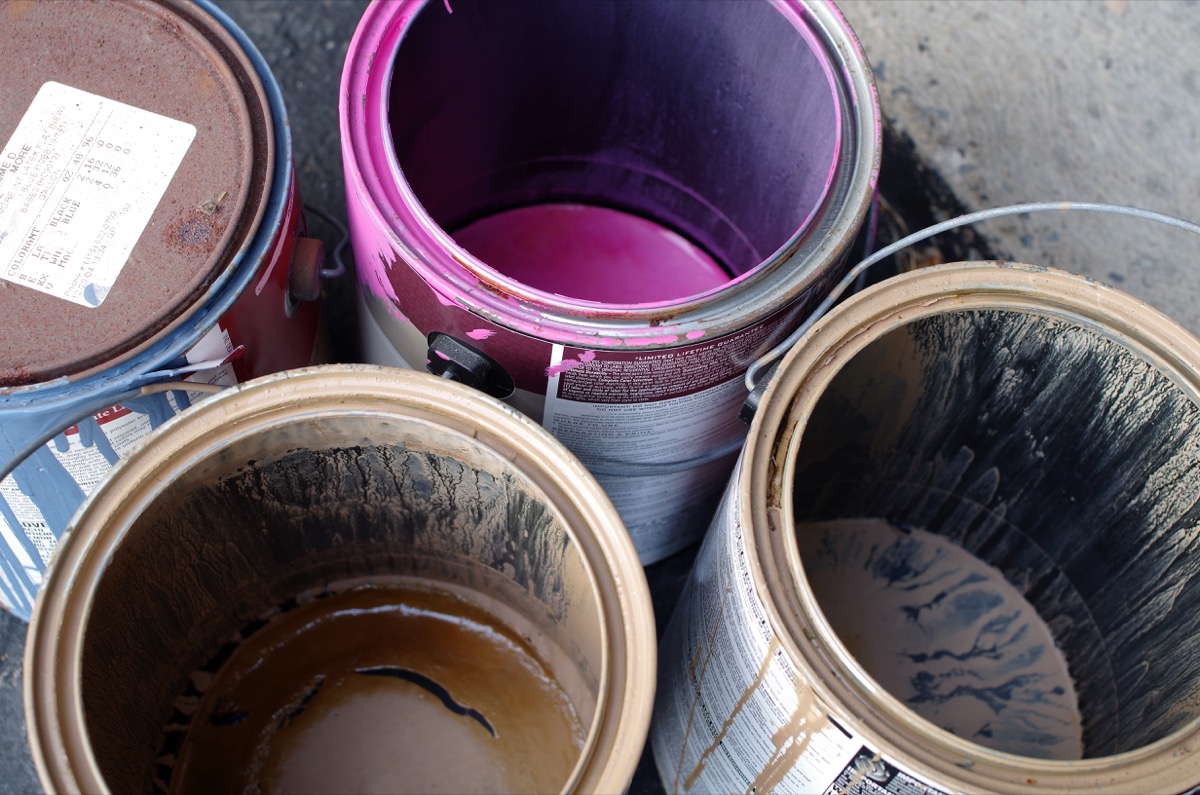
How to properly dispose of paint depends on what the paint is made out of. Latex-based paint needs to be disposed of at special waste drop-off sites, which you can locate by using Earth911. As for oil-based paints, small amounts—emphasis on small—can be thrown away along with your household trash so long as they are mixed with an absorbent material that will soak them up. If you’re dealing with a large quantity of oil-based paint, then you’ll need to contact a private contractor to pick up your stash and get rid of it properly. And for more ways to do the right thing, ditch these 21 Habits That Are Bad for the Environment.
5
Lighter Fluid

Because lighter fluid is a fuel, it’s considered hazardous waste. As such, any unwanted kerosene must be disposed of at a household hazardous waste facility where it won’t harm other humans or the environment.
6
Motor Oil
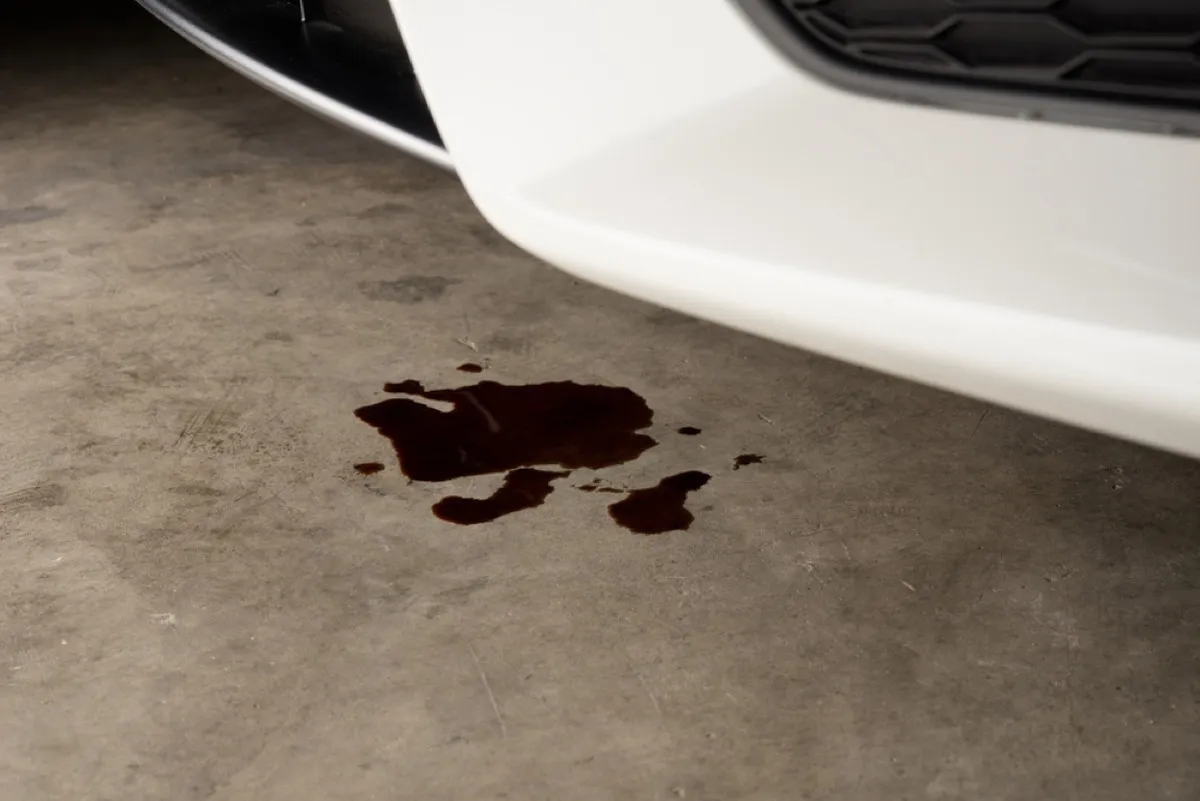
Like lighter fluid, motor oil is flammable and therefore a hazardous waste. In addition to bringing this fluid to a hazardous waste facility, you can also bring it to a local automobile repair shop where it will be put to proper use.
7
Old Laptops

Hopefully you know by now that laptops should never go in the garbage, seeing as they can toxic chemicals like mercury, lead, and chromium.
However, did you know that Staples makes it easy to do away with old computers, whether they’re working or not? If your computer is still functional, you can take advantage of the company’s tech trade-in program to both get rid of your computer and make money in the process. And if your laptop is totally kaput, the store also offers an electronics recycling program at no cost to you.
8
Smartphones and Tablets
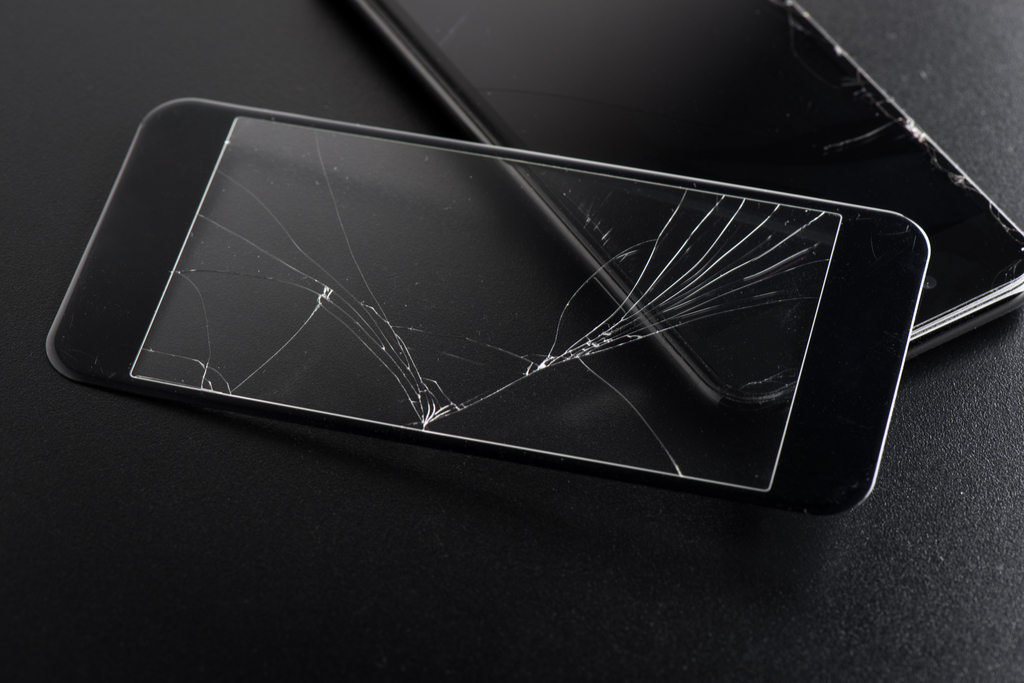
Just like laptops, your other handheld electronics can contain toxic substances. The good news? Staples’ electronics program isn’t limited to computers. If you have a cell phone or tablet that you’re no longer using, then you can bring it to Staples and either recycle it or trade it in for cash, depending on its condition. And for more great ideas, learn these 21 Ways to Help the Environment, Starting Right Now.
9
Unused Medications
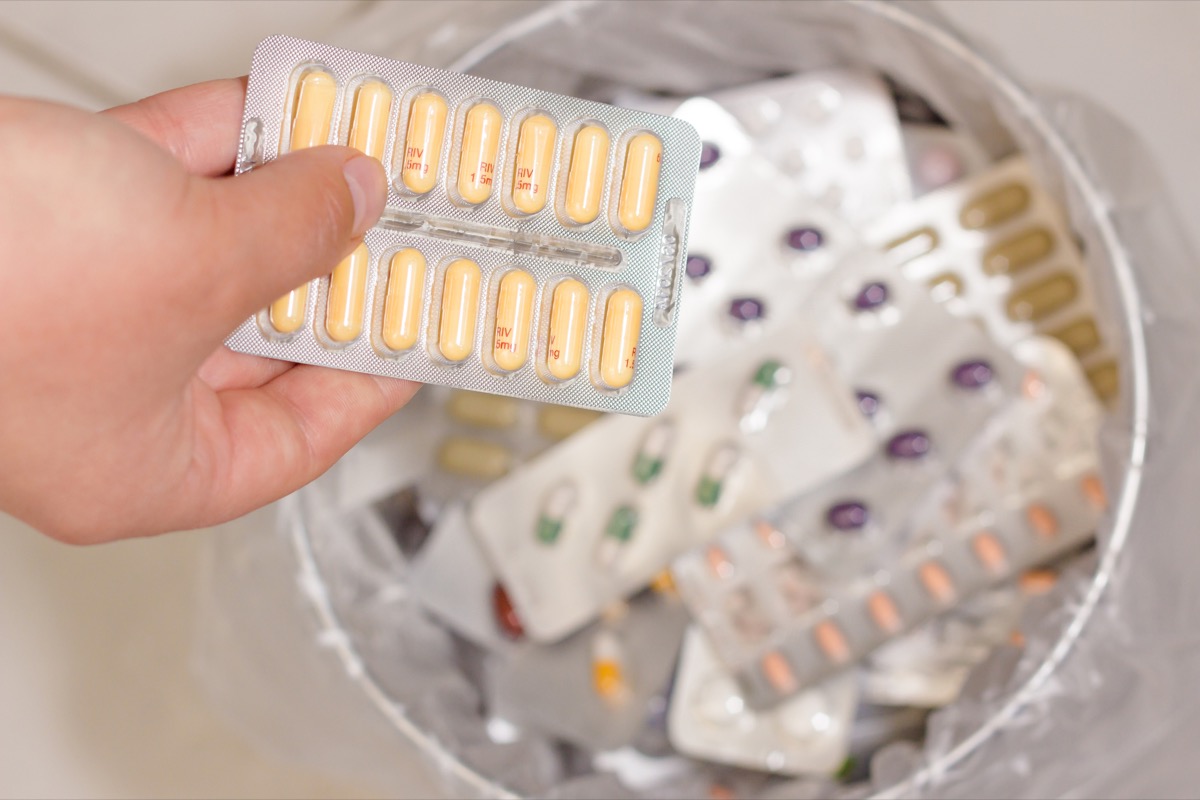
When medications aren’t disposed of properly, they can end up in the water supply or even in the wrong hands. Thankfully, the U.S. Drug Enforcement Administration (DEA) holds National Prescription Drug Take-Back events nationwide where you can safely dispose of unused and unwanted prescriptions. And if you miss this event when it happens in your area, don’t fret; most municipalities also have controlled substance public disposal locations that are available to the public all year round.
That said, there are some ways to get rid of your medications at home. As long as they don’t have specific disposal instructions listed, the Federal Drug Administration (FDA) notes that you can combine the medications with something inedible, like cat litter or dirt. Then place the mixture in a plastic bag, and throw it away.
10
Knives

Though your knife may no longer be good to you, for safety reasons, you shouldn’t simply put it in your garbage can. Luckily, there are plenty of alternatives.
One option is to donate your unwanted knives to a local soup kitchen or thrift store (so long as they accept them as donations). But if you’re certain your knife is no longer good to anyone, find a scrap metal recycler in your area (most metro areas have one). If that still isn’t an option, you can also carefully throw away your knife. Taste of Home suggests you wrap it in newspaper, cover it in cardboard or bubblewrap, secure it with heavy-duty tape, and then place it in a box and seal it with more tape. And for more useful content delivered straight to your inbox, sign up for our daily newsletter.
11
Loose Broken Glass
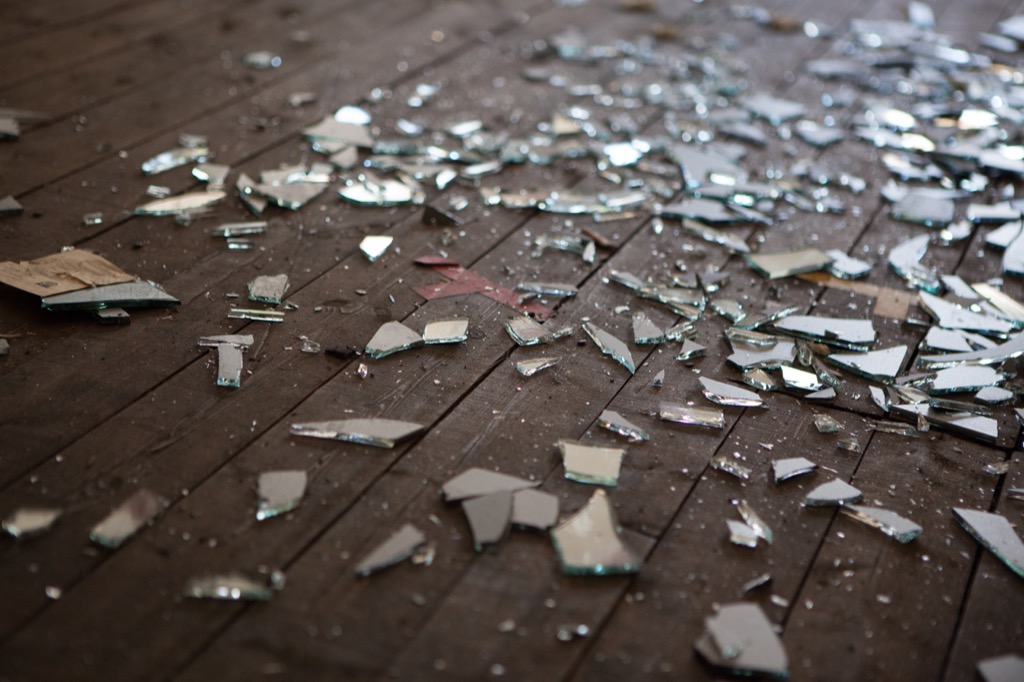
When it comes to disposal, glass and knives follow the same rules. Any object like these that could physically cut someone needs to be stored in something cushiony before it’s put in the trash. “To dispose of broken glass, seal it in a box or wrap it in several sheets of newspaper and place it in your garbage,” advises the Recycling Council of British Columbia.
12
Needles
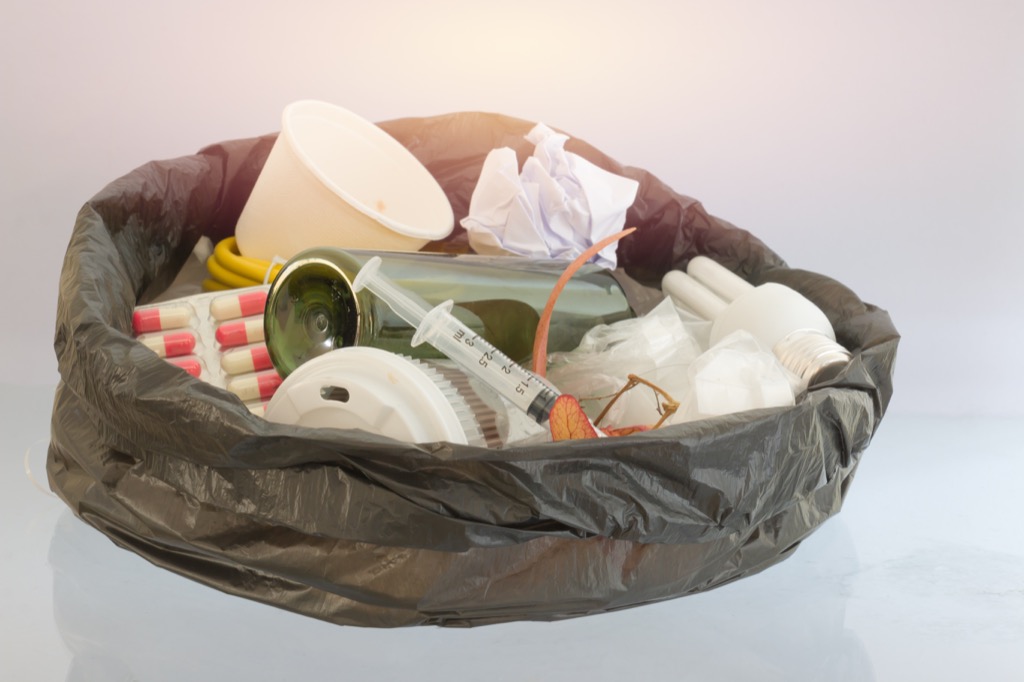
Just like knives and glass, a sharp needle should never be thrown loosely into the trash or recycling. Ideally, you should get a hazardous materials bin from your doctor’s office where you can place used needles, and then return the bin to the doctor.
For more information on your state’s regulations regarding needle disposal, check out SafeNeedleDisposal.org’s interactive map.
13
Mail
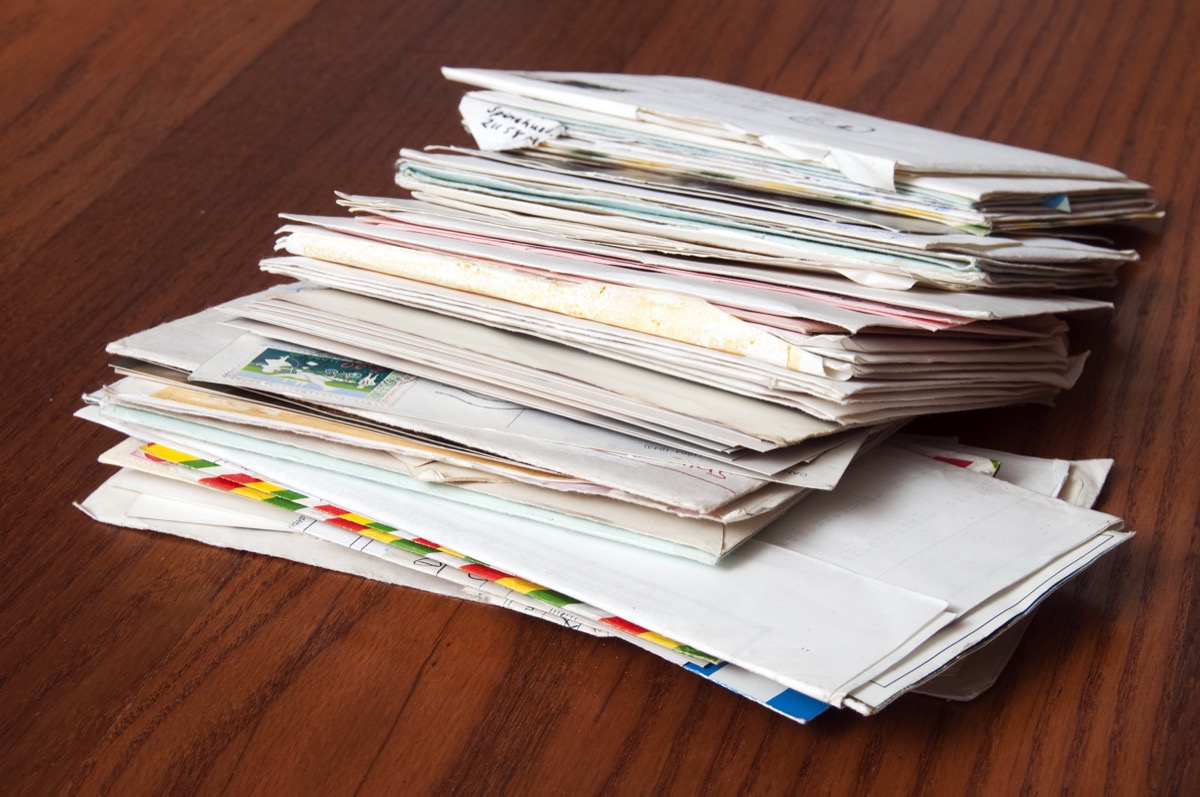
Of course, you should be recycling all of your mail because it’s, well, recyclable. However, that’s not the only reason why this particular item doesn’t belong in the garbage. Because of all the valuable information contained within letters from credit card companies, doctors, and the like, security company LifeLock notes that “your mail can be a valuable target for identity thieves.” Shred and recycle your mail—even if it’s spam.
14
Laundry Detergent
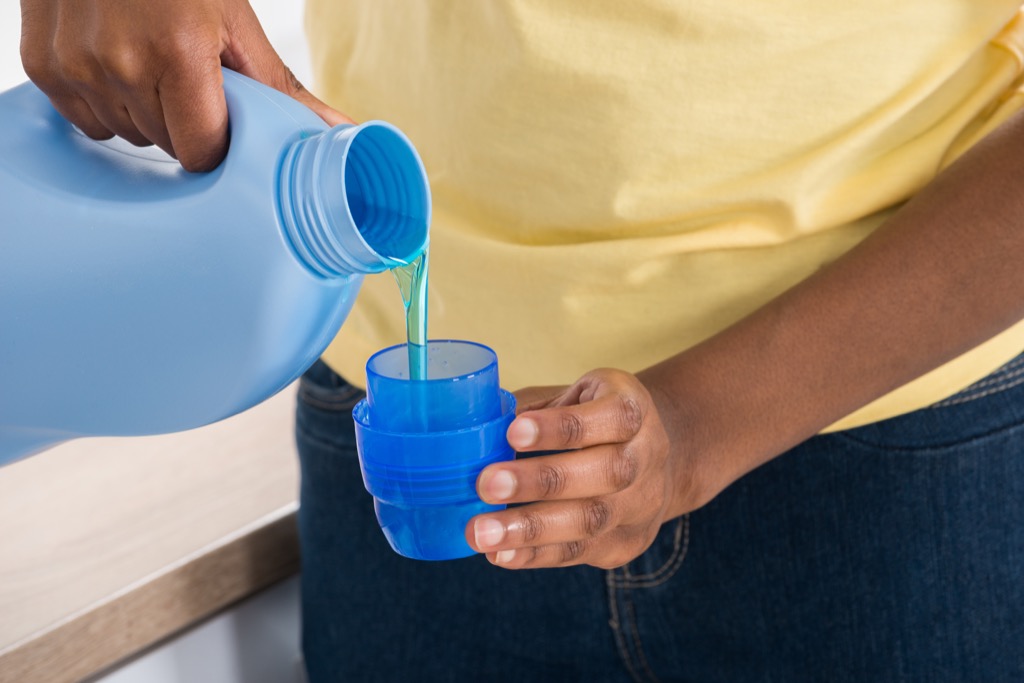
Of course, the best thing to do with extra laundry detergent is to use it. However, if you’ve become allergic to your detergent or can’t stand its smell, then you should pour the remaining liquid down the drain as the water is running. This is safer for the environment than pouring it into the trash, where it runs the risk of seeping into the soil and polluting it with toxic chemicals.
15
Hot Oil

Hot oil should never simply be poured in your trash can because it can get stuck in there and cause a major mess. And if you throw it down the drain immediately after cooking, it could potentially cause sewer backups and damage your pipes. Instead, make sure to wait until the oil cools, and then pour it in a container to be thrown out with the rest of your garbage.
16
Matches

Once you’ve used a match to light your kid’s birthday candles, don’t simply toss it in the garbage. Matches can spark in the trash should they happen to strike against a rough surface. Instead, make sure to soak any unwanted matches in cold water before you throw them away.
17
Hair Styling Tools
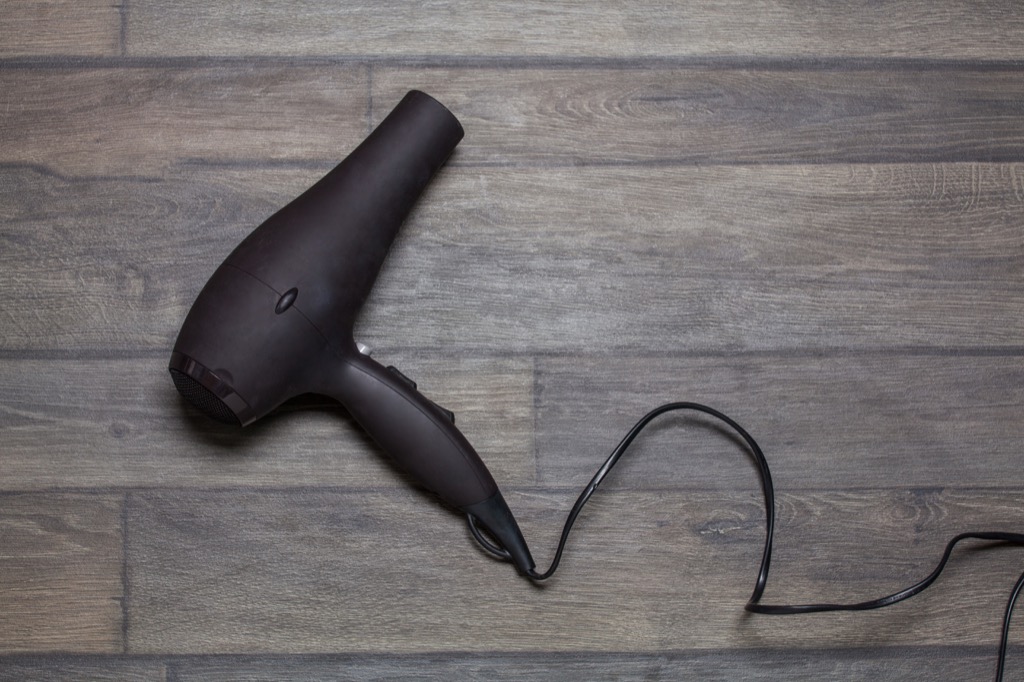
According to Toxic-Free Future, electric items contain harmful chemicals like lead, chromium, and cadmium that, when thrown away, “can escape the products and contaminate air.”
Thankfully, “curling irons, hairdryers, and other similar hair appliances can be recycled for their scrap metal rather than thrown away,” notes Earth911. “Although these appliances can’t be put in curbside recycling bins, they are accepted anywhere scrap metal is collected.”
18
Old Clothes

Do you want to know what happens to clothes that you throw away? According to the EPA, a staggering 10.5 million tons of textiles ended up in landfills in the U.S. in 2015—and since these piles of clothes are not biodegradable, they end up contributing to the pollution of the environment. Thankfully, there’s a little thing called textile recycling that avoids this altogether. Companies like Greenmarket Clothing Collection, Green Tree Textiles, and Planet Aid all have collection boxes where you can drop off clothes to be recycled the eco-friendly way.
19
Space Heaters
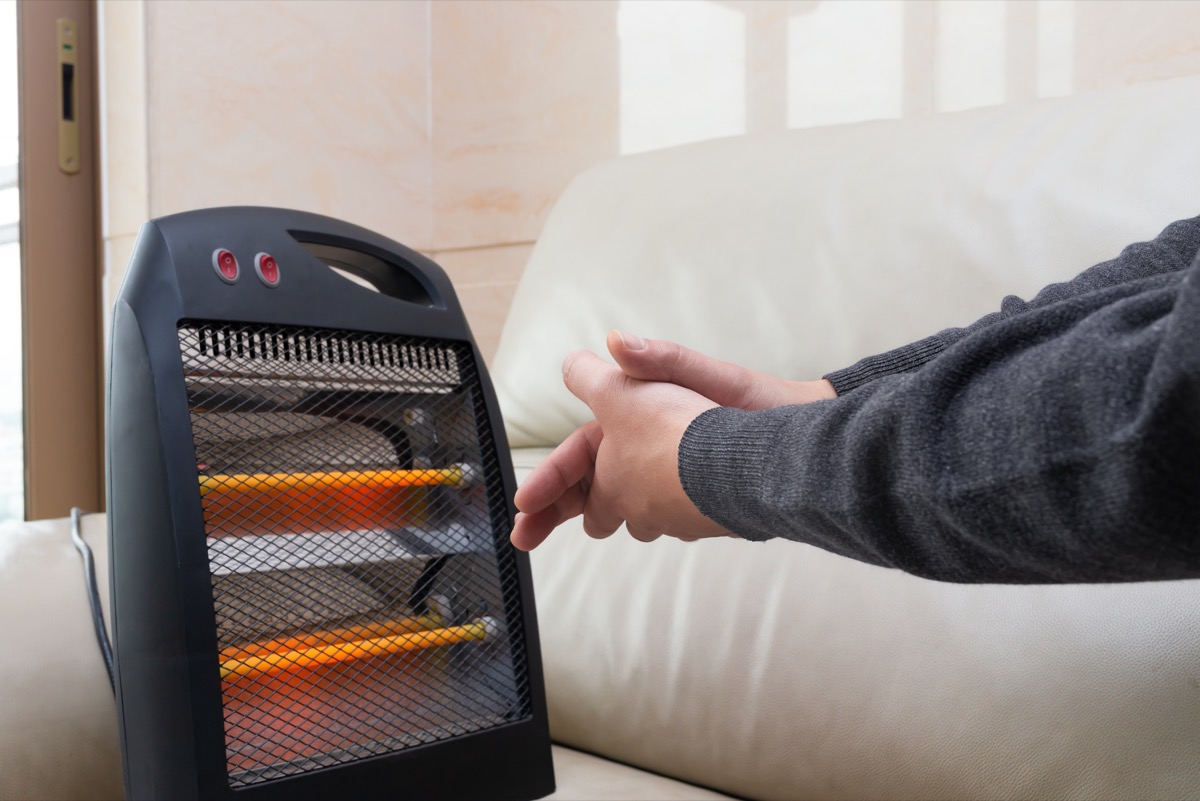
According to the Chittenden Solid Waste District in Vermont, whether or not your space heater can be thrown in the trash depends on what type it is.
If your space heater is made primarily of plastic and doesn’t contain any hazardous materials, then it can be disposed of alongside your household trash. If the heater is made primarily of metal without any hazardous fluids, then you can bring it to a scrap metal center to be recycled. And if the heater does contain hazardous material, then you’ll need to bring it to a hazardous waste facility to be taken care of safely.
20
Old Flags

Technically, the proper way to dispose of a ripped flag is to burn and bury it. In fact, there is even a United States Flag Code that was written in 1976 that states that “when [a flag] is in such condition that it is no longer a fitting emblem of display, [it] should be destroyed in a dignified way, preferably by burning.” If and when you need to get rid of a flag, check out the Veterans of Foreign Wars’ guide on proper flag burning here.
21
Ink Cartridges
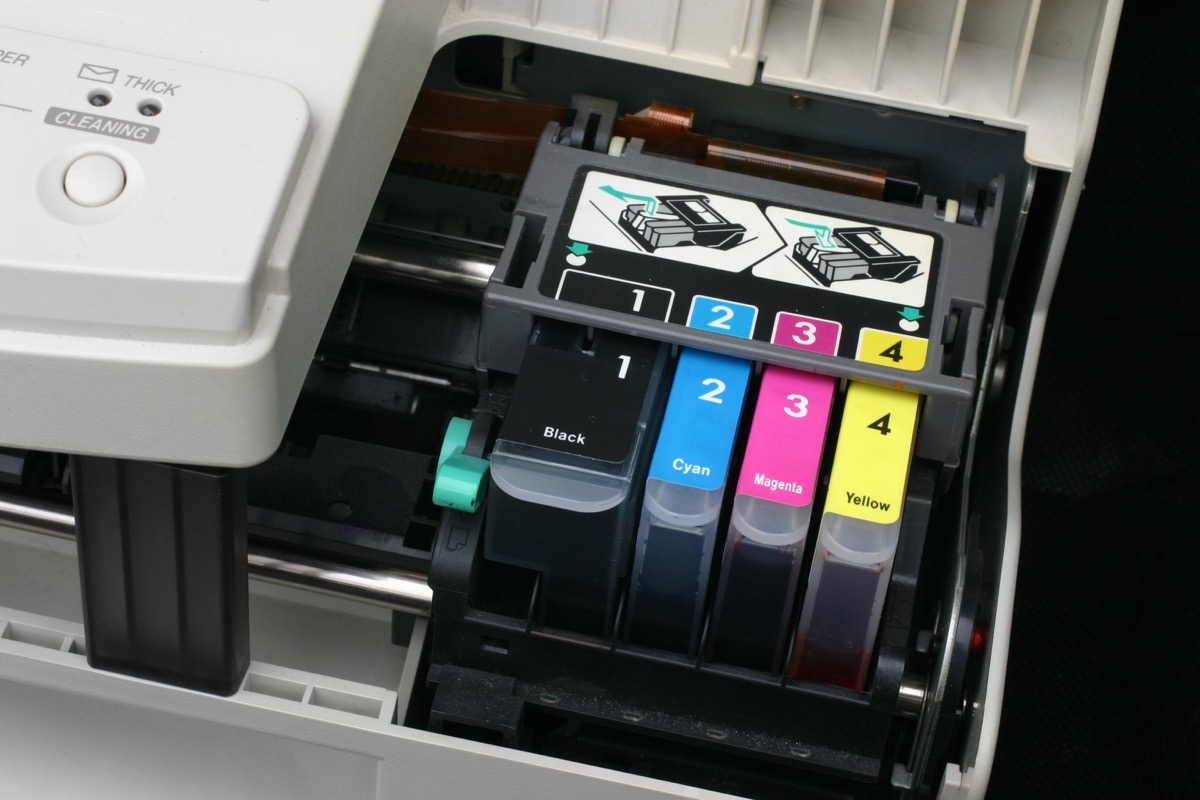
Do yourself a favor and don’t throw out your old ink cartridges. If you buy your ink or toner at Staples, then you can recycle it there, too. In fact, you’ll even get $2 for each used cartridge you recycle at the store! Alternatively, you can also bring your cartridge to Costco and get it refilled with ink for a fraction of what a typical cartridge costs.
22
Old Appliances

Though you technically can schlep your fridge or dryer downstairs for curbside pickup, who wants to lug such a large appliance to the street on the one day a month bulk items are collected when there’s a much easier way to dispose of it? When you’re at the store buying the replacement model for your old appliance, ask a salesperson whether they offer removal services. Most companies will take unwanted items off your hands—sometimes even for free!
23
Unwrapped Mattresses
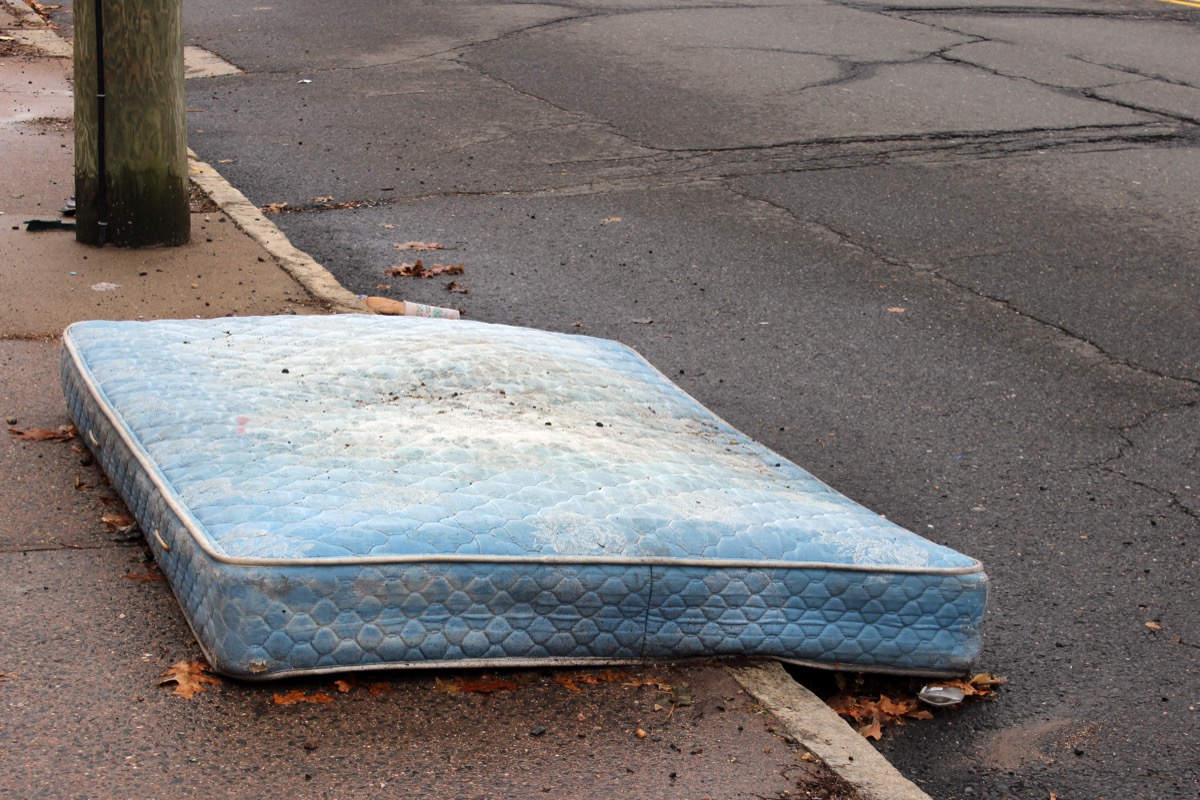
While you can also leave your mattress on the curb for pickup, you’ll want to make sure that you cover it with a plastic bag before doing so—unless you want to deal with pests and penalties. The city of New York, for example, warns that mattresses left outside sans plastic attract bed bugs and can incur a $100 fine.
Once your mattress is all covered and ready to move on to greener pastures, you can call up the garbage collectors in your city (so long as they offer bulk waste collection), and they will dispose of it accordingly.
24
Old Bicycles

Though you can throw away your old bicycle, you shouldn’t. As Lifehacker notes, there are plenty of recycling programs that can put the parts from your old two-wheeler to good use. And even if your bike is broken, there are charities nationwide that would be more than happy to take your old bike off your hands. In New York, Recycle-a-Bicycle refurbishes old bikes and donates them to youth in the community. And in San Francisco, Pedal Revolution uses old bicycles to teach local youth how build and repair bikes. Check out iBike for a comprehensive list of charities that accept bicycles nationwide.
25
Used Tools
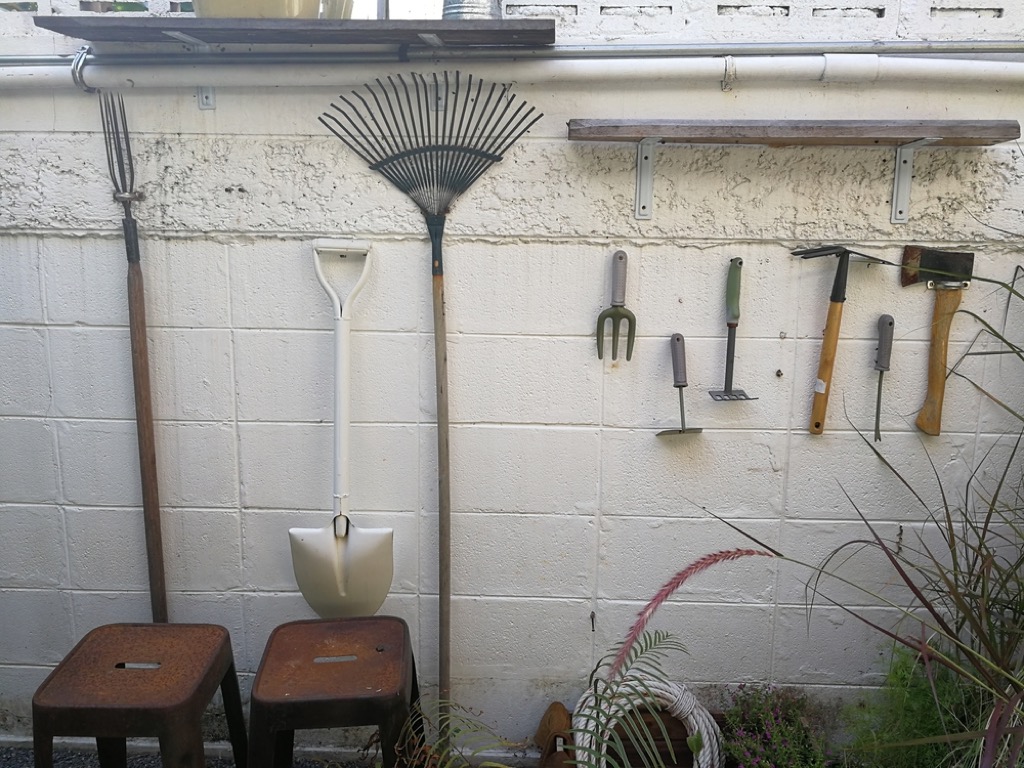
Sure, you can throw away those old shovels and rakes—but if you did, it’d basically be like throwing away money! Firstly, thrift stores like Goodwill and the Salvation Army are usually more than happy to take these tools off your hands and put them on their shelves, provided they’re still in somewhat decent condition. And secondly, Earth911 notes that “scrap metal is one of the most valuable products you can recycle.”
26
Old Pots and Pans
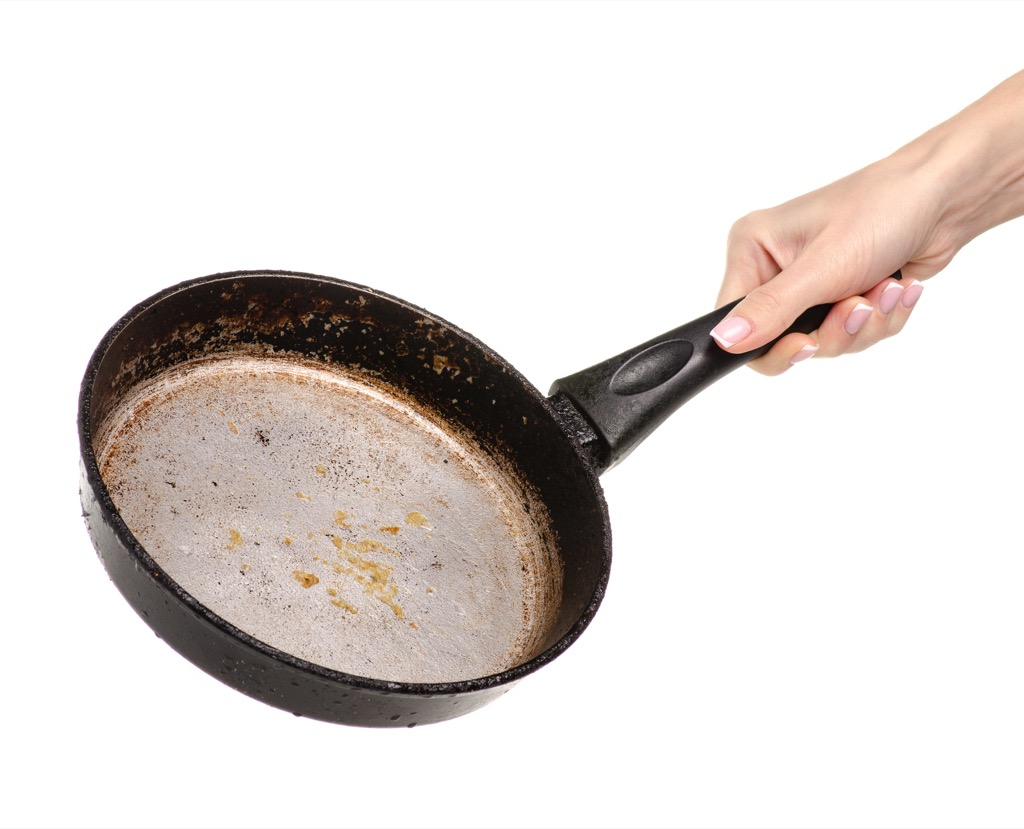
“Most pots and pans are made of metal and are therefore recyclable,” notes the culinary team at kitchenware outlet Pots & Pans. “However, most curbside recycling programs won’t accept them.”
So, what’s a chef to do when their cookware becomes scratched up and unusable? Bring it to the local scrap metal recycling facility, of course! Just make sure to indicate whether your pot or pan has a non-stick finish, since that needs to be removed before it can be recycled.
27
Old Swing Sets

If your swing set is still in relatively good shape and you’re only getting rid of it because your kids have outgrown it, then consider donating it. Parks, schools, shelters, and religious organizations are often in need of playground equipment, so giving yours away could be a great option. However, if your swing set is far past the point of repair, then you can take it apart and bring the remnants to a recycling facility for proper disposal.
28
Old Books

Just because you’re done with a book, that doesn’t mean it belongs in the trash. And even though they may be made of paper, recycling them isn’t the best option either. Instead, check out the many organizations out there that are more than happy to take your old novels and put them to good use. Better World Books, for instance, accepts donations nationwide—and part of the profits the organization receives from selling donated books goes toward funding non-profit literacy organizations.
Also, if there’s a local library in your area, it’s more than likely that they, too, accept donations.
29
Dead Plants
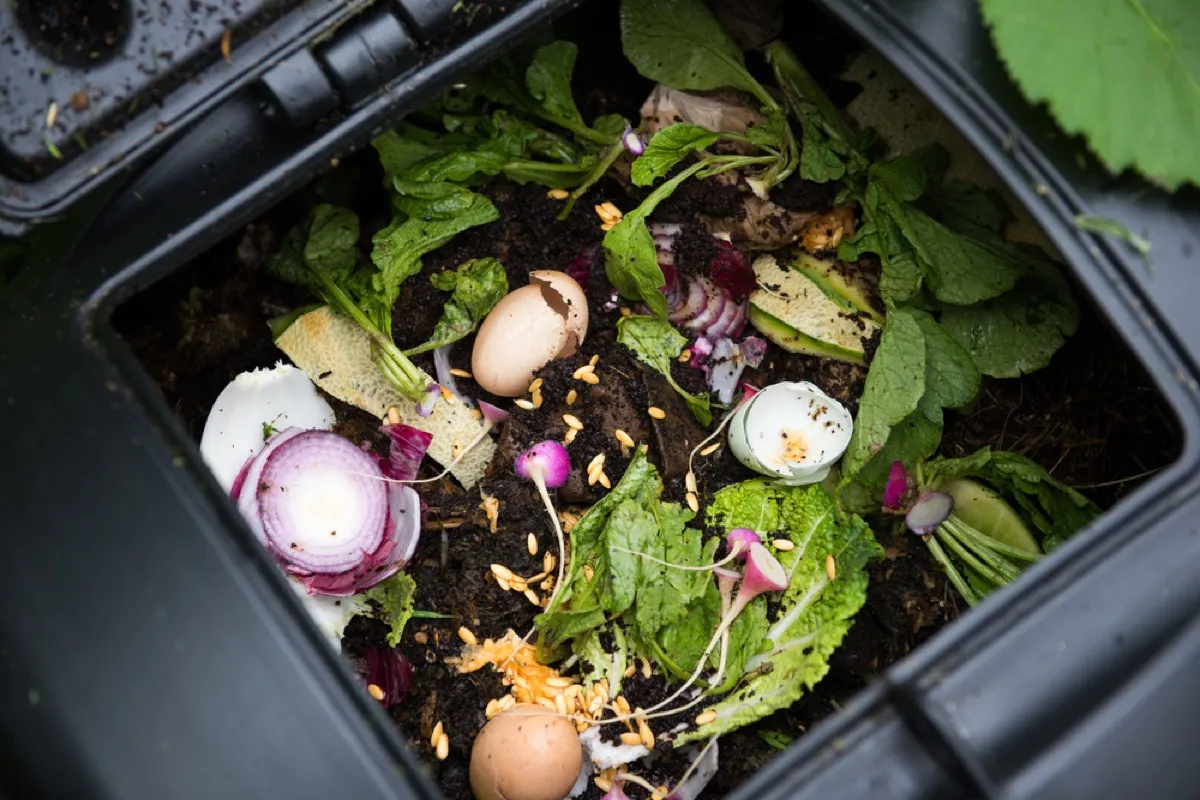
When most people think of composting at home, they think of things like vegetable peels and eggshells. But you can actually compost things from the garden as well, like dry leaves and dead plants. Unlike throwing these things in the trash, this recycling process nourishes the ecosystem while helping you get rid of any dead plants in your house or garden.
30
Mothballs
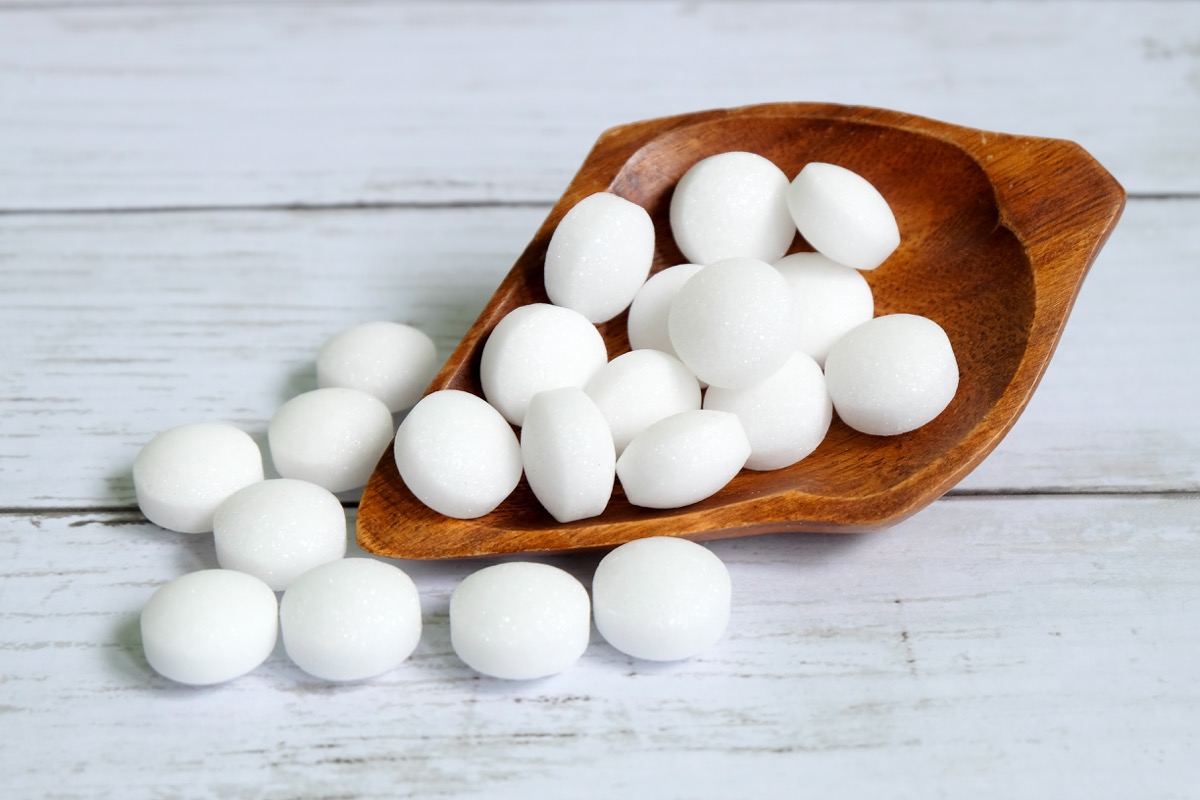
According to the EPA, people should “avoid disposing of pesticides whenever possible”—and believe it or not, mothballs are actually considered pesticides, since they contain ingredients like naphthalene and paradichlorobenzene. When you need to dispose of these potent balls, the EPA recommends doing so at a household hazardous waste facility.